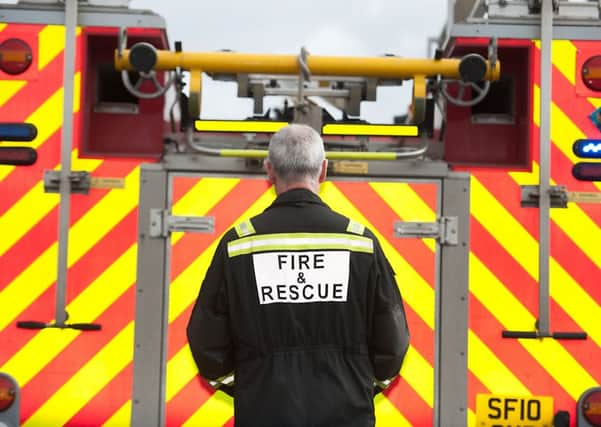Concern over 80 per cent rise of firefighters off with stress


The number of staff at the Scottish Fire and Rescue Service off work with stress rose nearly 80 per cent in a year.
Figures obtained by the Scottish Conservatives show 137 firefighters and support staff took sick leave citing stress in 2016, up from 77 the previous year.
Advertisement
Hide AdAdvertisement
Hide AdThe SFRS said low figures for 2013 (fewer than ten) and 2014 (27) were not comparable due to the way absences were recorded prior to the creation of the single service.
Scotland’s eight regional fire brigades were merged in 2013 at the same time as the creation of Police Scotland.
According to the figures – obtained using Freedom of Information legislation – 123 workers have been signed off this year as of mid-September.
Figures published by the Fire Brigades Union earlier this year showed more than 1,000 firefighter posts had been lost in Scotland since 2010, raising concerns about the sustainability of the service, particularly in the wake of the Grenfell Tower tragedy.
Scottish Conservative shadow justice secretary Liam Kerr said: “This is an extraordinary and hugely concerning increase in the number of firefighting staff who’ve been signed off with stress.
“Being a firefighter is among the most brave and stressful jobs anyone could do, but this recent spike must be attributable to something more.
“And of course there’s far more to the organisation than just those on the frontline, and those crucial administrative workers will have been under huge pressure too.”
He added: “These figures must be a wake-up call for the SNP government, which clearly needs to do more to look after hardworking firefighters.”
Advertisement
Hide AdAdvertisement
Hide AdA spokeswoman for the SFRS said: “There is no doubt that bringing together eight separate organisations and 8,000 staff into the UK’s biggest fire and rescue service has been a challenging process.
“The safety and wellbeing of our staff remains a key priority. We are acutely aware of the importance of this area and we continually review our processes to ensure equitable access to key support services.
“We have effective arrangements in place including a dedicated health and wellbeing department resourced by qualified health professionals. This is supported by specialist materials for both staff and management.”
She added: “We continue to develop our data monitoring systems to better understand the causes of such absence and inform how we provide support to our staff.”